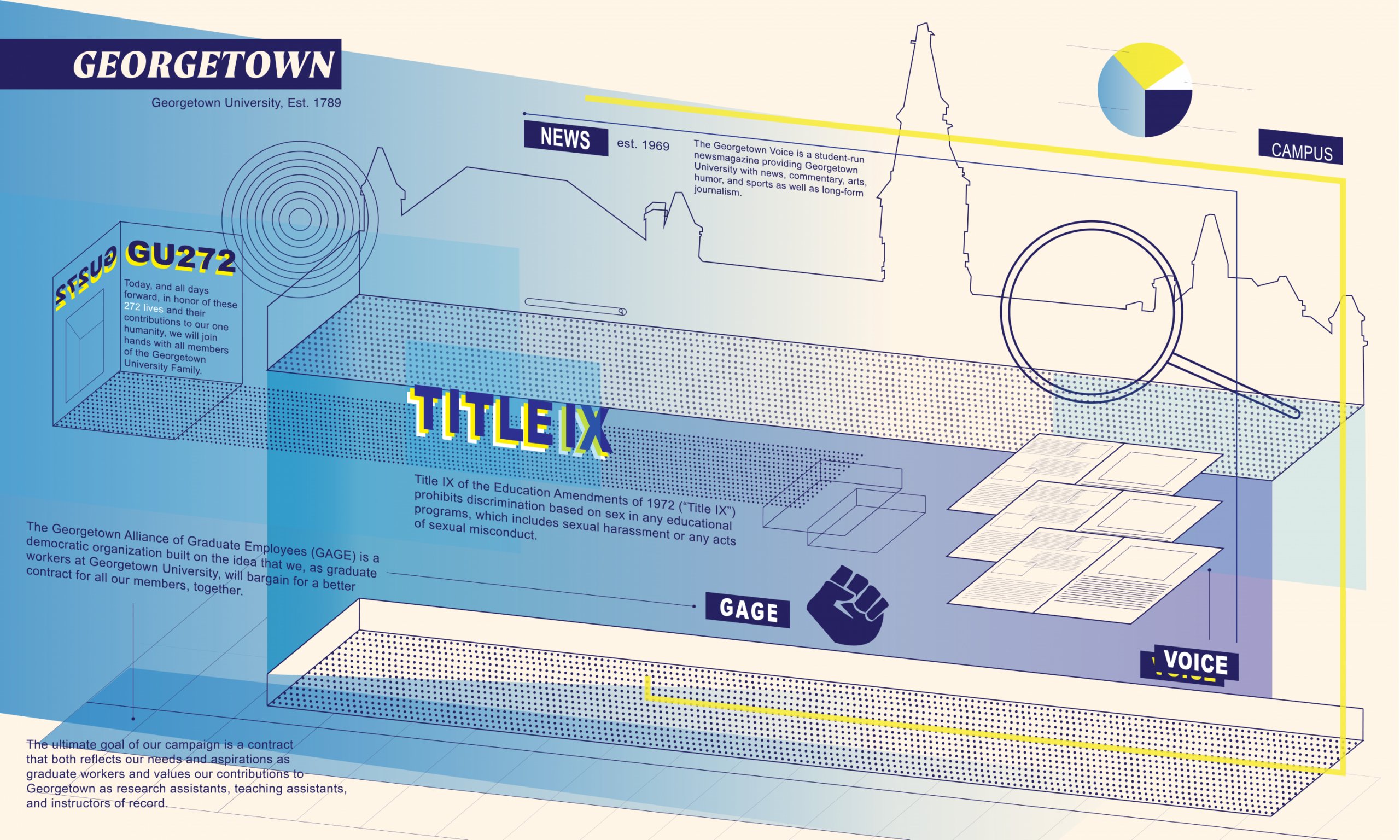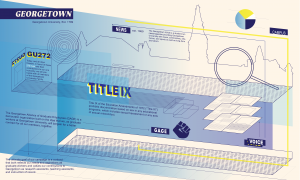In just a few weeks, Georgetown students will be returning en masse to campus for the first time since the onset of the COVID-19 pandemic in the spring of 2020. Though most of the university’s standard operations are expected to resume, Georgetown is still taking precautions to ensure the safety of its students, faculty, and staff. While guidance is still evolving (and may continue to change with the spread of the Delta variant), the current available information forms a rough outline of what the fall semester will look like day to day.
Vaccines, testing, masks, and distancing
All students, faculty, and staff are required to submit proof of vaccination to the university before the semester begins. Students must receive an approved vaccine, which includes Pfizer-BioNTech, Moderna, Johnson & Johnson, AstraZeneca, COVISHIELD, Sinopharm, and Sinovac. In compliance with federal law, individuals may request a medical or religious exemption to this requirement. Georgetown is offering free vaccines to any community members who have not yet been able to receive one, including any students arriving from areas where they were not able to receive an approved vaccine or be fully vaccinated. Any students who need to schedule a vaccine appointment can email covidcarenavigator@georgetown.edu.
All community members are required to take a COVID-19 test when they first arrive on campus. Asymptomatic vaccinated students are not required to get tested regularly, though tests will remain available, and anyone experiencing symptoms is expected to make an appointment to get one. Non-fully-vaccinated community members will be tested twice weekly and should regularly complete the GU360 daily check-in. Fully vaccinated students only need to complete the survey if they have been exposed to COVID-19 or are experiencing symptoms.
Masks are still required indoors on campus, as they are in the rest of D.C. Students can take off their masks indoors if they are eating or drinking, alone in a room with a closed door, or in their residence. Georgetown has indicated they expect to ease this requirement as all community members get fully vaccinated and transmission decreases. According to a university spokesperson, all heating, ventilation, and air conditioning systems meet CDC standards to mitigate viral transmission.
Most Main Campus and Medical Center buildings are currently open at full capacity as of Aug. 2 and are expected to remain open during the semester. Physical distancing inside is no longer required, though it is encouraged for any individual who is not vaccinated or is at high risk for the virus.
Any community member who has close contact with someone who has COVID-19 or was exposed to COVID-19 should self-quarantine and stop participating in all in-person university activities. Anyone with COVID-19 is required to isolate.
Academics, meetings, and events
Unless classes are approved by the university to be taught online, they will be offered in person. According to a university spokesperson, the majority of classes will be taught in person. The optional satisfactory/credit/no credit policy from last year is no longer in effect, meaning students will receive letter grades in all their classes. All non-freshman students can choose to pass/fail one elective class up until the last day to withdraw. The last day to drop a class without it appearing on a student’s transcript is Sept. 3, and the last day to withdraw is Nov. 18.
Events and meetings can resume on campus as long as they follow all COVID-19 policies, including the mask policy. Attendees are highly encouraged to be vaccinated, and some gatherings may be required to register guests to assist in contact tracing. This policy includes student clubs and organizations, which are allowed to hold in-person events and meetings. Capacity limits are currently at pre-pandemic levels, though the university can choose to limit capacity for large gatherings at any time.
Residential life
Students are placed in on-campus residences with other students as in previous years, though some are living in the university’s hotel due to residential capacity. Social gatherings will be subject to pre-pandemic capacity limits, though all attendees are expected to wear a mask when inside with those outside their household. Over the last year, the university has barred students from having more than ten people in a residence, required all individuals to be masked when spending time with those outside their household, and imposed increased sanctions on any students in violation of these policies.
All dining options on the main campus will be open at full capacity by the first day of school, including Leo’s. Yates Field House will open to fully vaccinated students on Aug. 23. Students will need to wear a mask when exercising in any indoor facility.
All policies are subject to change based on public health conditions. “Our number one priority is the safety of our community. We are continuing to assess public health conditions, including the presence of COVID-19 in our community and here on campus, and will update the University’s guidelines – including mask and gathering policies – as appropriate,” a university spokesperson wrote in an email to the Voice.
As of Aug. 12, the 7-day new case average in D.C. is 142, a 105 percent increase from two weeks before. In D.C., 0.4 percent of fully vaccinated individuals have been diagnosed with a breakthrough case of COVID-19. Just over half of all residents are fully vaccinated.
Editor’s note: This article was updated to correctly reflect the last day to elect to pass/fail an elective.





